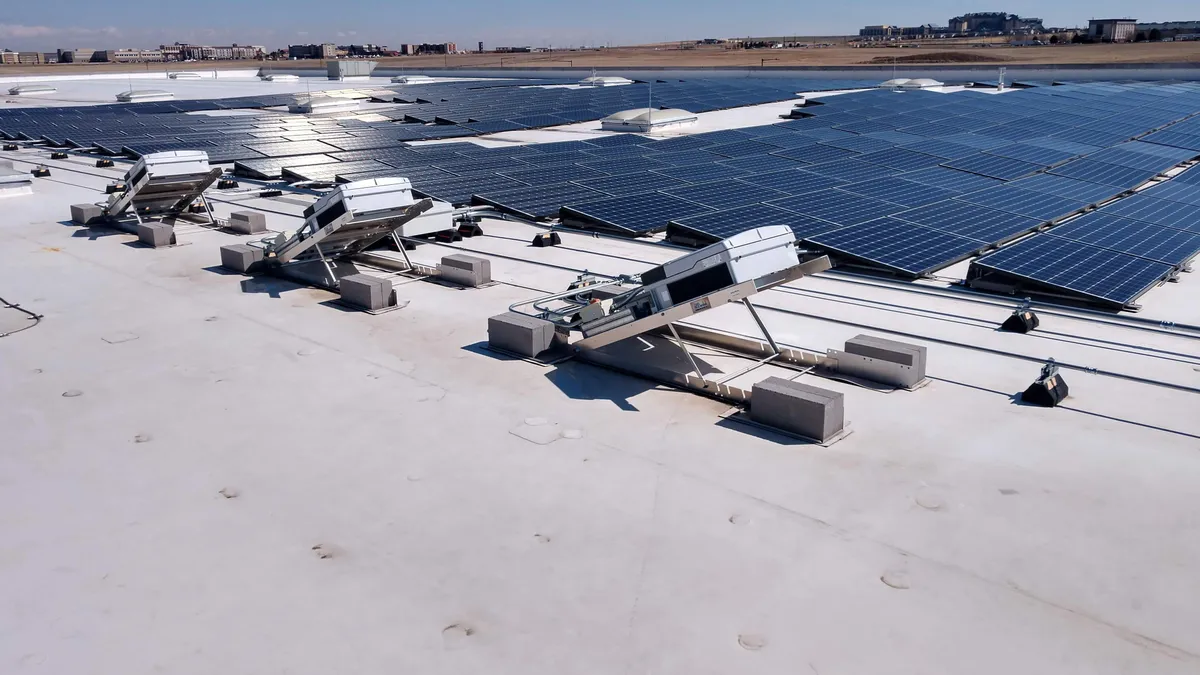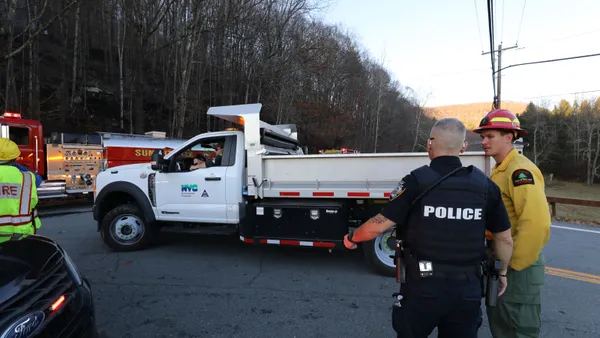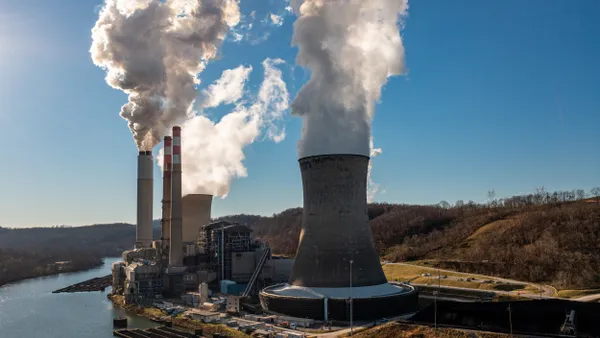Dive Brief:
- Google announced plans to launch a $4 million fund in partnership with ICLEI-Local Governments for Sustainability to help nonprofits and academic institutions in Europe and Latin America work on data-driven projects to fight climate change.
- The first grant will go to the Mexican nonprofit Iniciativa Climática de México (ICM) for its "Hogar Solar" program that directs government spending on electricity to solar panels to help expand the solar market. The nonprofit targets those facing energy poverty and seeks solar energy as a way to reduce energy costs.
- Google is also expanding its Environmental Insights Explorer (EIE) tool to more than 100 cities worldwide. The tool, built on Google Earth, offers high-resolution data to measure greenhouse gas (GHG) emissions to help city governments plan and measure the impact of climate change projects.
Dive Insight:
Cities have taken the lead on fighting climate change in many ways, but having the resources and knowledge to back up those efforts can be a challenge on city budgets. Google's new fund is a step in the right direction to bolster those budgets, though for a company with an estimated $300 billion net worth, questions may be raised on why the company doesn't put more monetary investment behind this effort.
The company has also worked to make the EIE data available to cities for that very reason, offering aggregated mapping data and GHG emission factors that governments can use to estimate emissions from buildings and transportation, or forecast solar energy potential.
"We believe that empowering city governments with comprehensive, climate-relevant data and technology can play a critical role in igniting action," Rebecca Moore, director of earth engine and outreach for Google Earth, wrote in a blog post.
After sampling 3,000 cities, Google estimates they could collectively generate 1 terawatt (1,000 gigawatts) of solar energy if each city maximized their solar potential. The EIE insights can help cities find the best use for solar panels, according to Moore's blog post.
Cities account for most of the world’s emissions and increasing international attention has focused on what mayors can do to fight climate change. The 438-member Climate Mayors coalition in the U.S.has taken steps to share information and strategies for cities of all sizes to tackle climate change.
At the C40 Summit in October, 94 mayors announced support of a Global Green New Deal. And climate pledges from some 3,000 sub-national partners, including U.S. cities, have the country on pace to reduce emission 17% of 2005 levels by 2025, according to a 2018 report from the group America's Pledge.










